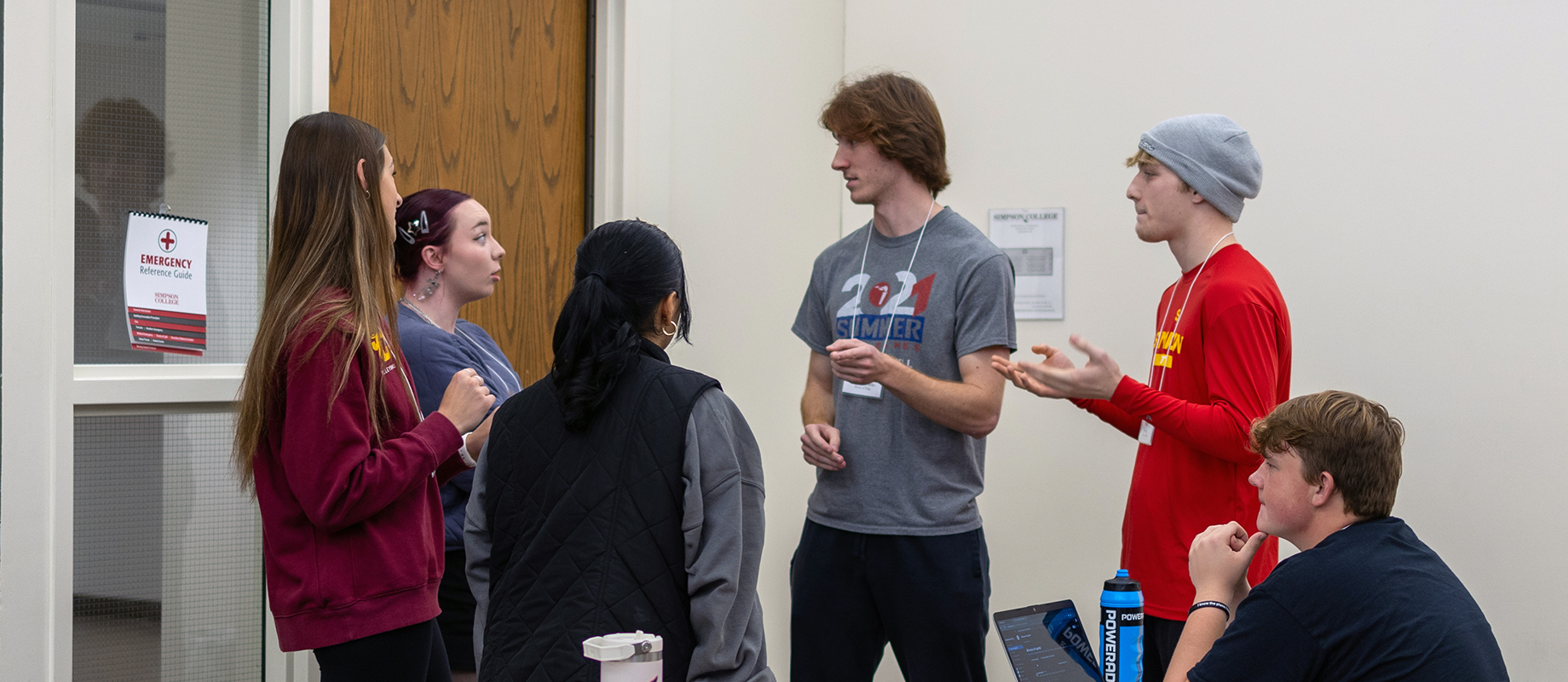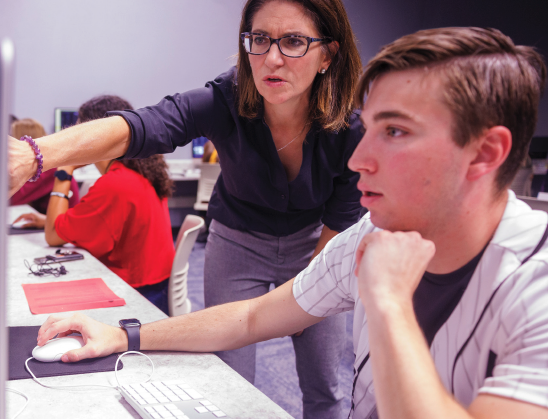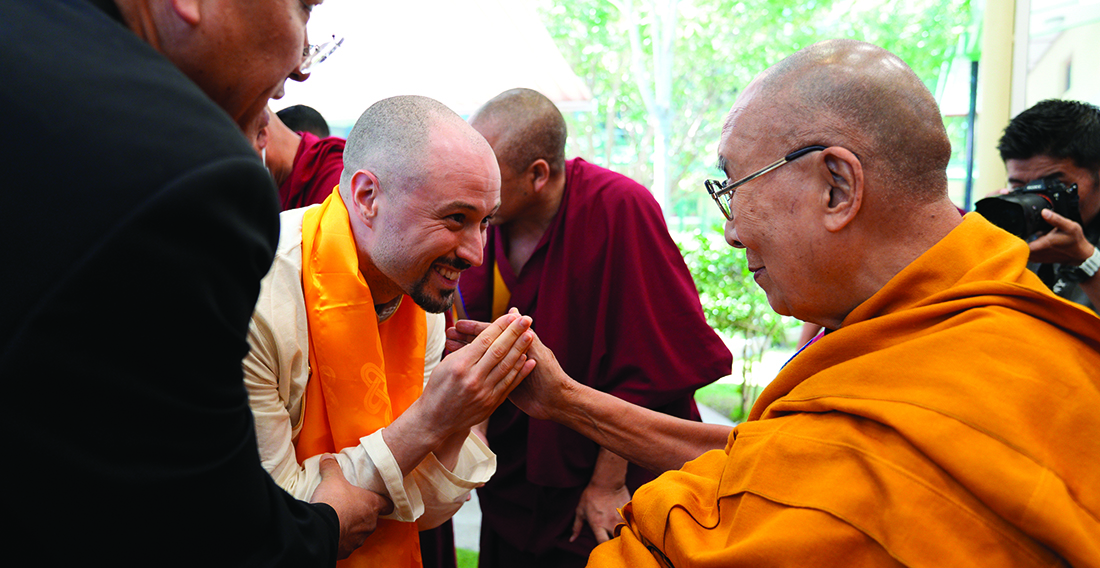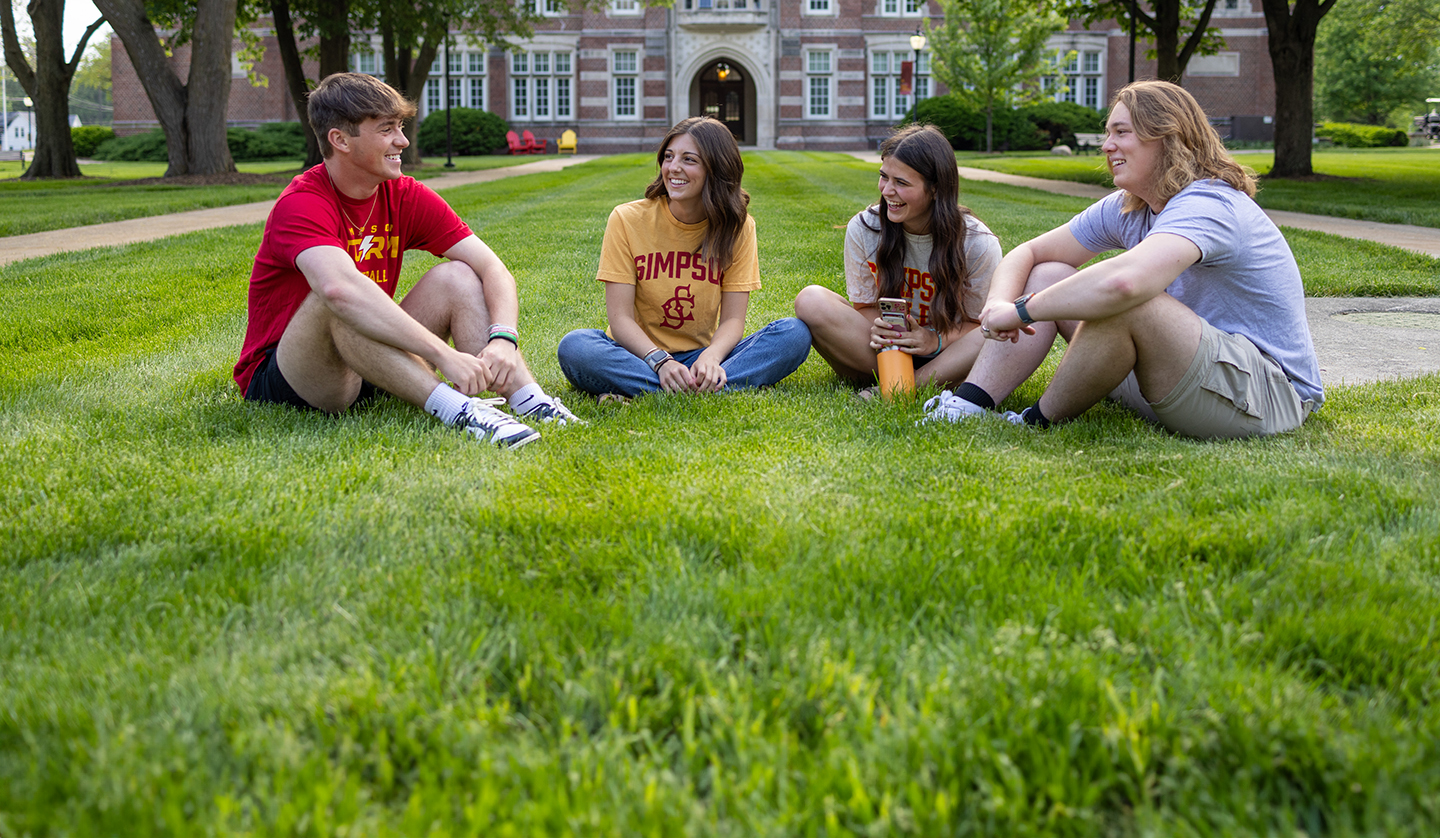Faculty Impact
More than 9 out of 10 Simpson graduates say they had at least one faculty member who made learning exciting. Representing a wide breadth of disciplines and distinctively unique teaching styles, Simpson faculty are united by one common desire — to create extraordinary learning experiences as they help students realize their full potential.

1: Reacting to the Past–History Offers “Game On” Excitement
The days of traditional classroom lectures serving as the singular dominant pedagogy at Simpson is ancient history. Today’s classes are all about active and involved learning for all students.
A prominent feature of the history curriculum is a series of “Reacting to the Past” learning modules, which are immersive role-playing games centered on engaging with significant historical events and ideas.
This semester, for example, Professor Nick Proctor’s first-year Foundations classes are spending two weeks role playing the contentious issues regarding the Vietnam War during the Chicago Democratic Convention of 1968 — a simulation exercise Proctor wrote.
“Students are encountering these ideas and conflicts through the eyes of somebody who was there, rather than as themselves,” said Proctor. “It gives students an opportunity to build historical empathy you really can’t get any other way.”
Students, including Drew Klein ’24, are buying in to Proctor’s teaching techniques. “I took a role-playing class and I was very skeptical going in. “[But] I loved it. Not only did I pick up on the concepts, but I was also working much closer with my classmates to accomplish academic goals.”
“These games have kept me more engaged with the content we are learning in class,” added Shaniah Temple ’25. “[They also] helped me continue to strengthen my writing ability because of all the different roles I had to write during the games.”
Proctor’s department colleagues, Rebecca Livingstone and Judy Walden, also write games and employ reacting pedagogy in their courses.
“I think anything that gets students to think of history not just as this dead past to be memorized, but something that matters — that’s what we’re after,” said Walden, professor of history. “We try to help them see that the ideas they’re debating still have resonance now.”
Indeed, the history games offer much more than just a fun and exciting way to get through course material. The skills and lessons learned have lasting benefits.
Not only do students develop deeper historical understanding,” said Proctor, “they also leave Simpson with with transferable skills employers are looking for — like public speaking, team building and problem solving.”
2: Creating Credible Connections
Professor of Multimedia Communications Lisa Carponelli has a reputation for keeping it real with her students. Coming to Simpson in 2008 after gaining prominence as a television news anchor, she has a passion for preparing students to become authentic and creative video story tellers.
 Her students learn by doing, most frequently leveraging the simple recording capabilities available on their smart phones.
Her students learn by doing, most frequently leveraging the simple recording capabilities available on their smart phones.
“I usually have students out filming a bit during class time, and then our classroom becomes a large editing suite, where everyone is at a desktop with headphones editing their footage. There’s a lot of collaboration and creative ideas zipping around the room — it’s a blast.”
Carponelli’s students corroborate her claims.
“She offers lots of hands-on help and in-class activities to make certain we completely understand what we’re learning,” said Aaron Wilkins ’25. “She teaches us to always revise our work to make it better and better until we reach perfection.”
“Professor Carponelli relates everything we do in class to real life outside of college,” said Maddie Hays ’25. “This makes it easy for her to push us toward our goals because we are able to take the skills we are learning and use them outside the classroom setting.”
One of Carponelli’s mentees, Sophie Reese ’23, is a news producer for WHO-TV in Des Moines. She says Carponelli put her on the right path from the get-go, creating an ideal environment for learning from day one.
“The energy she brought to the classroom was unlike any other professor I had,” said Reese. “She was kind, yet tough when she needed to be — she wasn’t afraid to call it how it is, which I admire. From Comm 101 to my senior capstone, she was a big part in preparing me for the real world.”
And, as fate would have it, Reese and Carponelli are now on the same team at WHO-TV. While Carponelli continues to teach at Simpson, she is returning to life on-air as a part-time weekend news anchor at WHO-TV.
“It’s pretty incredible to realize that my former students will now be my colleagues,” said Carponelli. “It doesn’t get any better than that.”
Read another article on Simpson’s faculty impact: Pushing to Peak Performance
Article Information
Published
December 12, 2023
Author
Roger Degerman
Department
Department of History, Philosophy, and Religion


